The Hardest Year Of My Life: Training For and Finishing a 140.6-mile Ironman Race
April 5th, 2022
On Sunday, November 21st, 2021 at 11:08 PM in Cozumel Mexico, I finished an Ironman triathlon. It took me a total of 15 continuous hours to swim 2.4 miles, bike 112 miles, and finish it off with a full marathon. I had been planning for this day for nearly a year, training 6-days-a-week, some days dedicating more than 8 hours to training.
A few minutes after I had crossed the finish line, I collapsed and was taken to the infirmary. I couldn't move and was hooked up to an IV for the next hour. Thoughts that I had irreversibly damaged my body raced through my head. At least I did it. My childhood dream to do an Ironman put me through more discomfort than I ever could've imagined and being hospitalized wasn't even close to being the worst.
This is my Ironman journey.
Table of Contents
Part 1: The Why
It Starts With a Dream
The idea of doing an Ironman, a triathlon race consisting of a 2.4-mile (3.9 km) swim, a 112-mile (180 km) bicycle ride and a full marathon 26.2-mile (42.2 km) began with nothing other than procrastinative YouTube binges. I've always been inspired by feats of human greatness, whether in the sciences, the arts, or the physical. I'm not sure what it is, but watching people climb Mt. Everest, complete Navy SEAL BUD/S training, free solo El Capitan, and finish an Ironman have always lit up something deep-seated within me. It was part deranged beauty, ego. But beyond all, it was a dream to see what I was really capable of.
Everyone enjoys a good challenge, but beyond that, I've always seen myself as a dreamer. Even when I nearly failed high school by having a 1.9 GPA*, I never stopped dreaming about the one day that I would transfer to a top university, land a Big Tech company job, finish an Ironman, climb Mt. Everest, and one day build a multi-billionaire dollar business.
For as long as I first learned what an Ironman was, I had wanted to do one. Little did I know that that day would come much sooner that I had expected.
The Turning Point
In October, 2020, one of my college housemates, Solomon Demmessie, told me that he had recently finished an Ironman triathlon race and a 50-mile ultramarathon. When we lived together, he couldn't even run more than a few miles at a single time. Seeing somebody so close to me go from running a few miles to finishing an Ironman made me realize that I could finish one too.
And so when he told me,
"You should sign up for Ironman California".
I said,
"ok".
The rest is history.
(I actually did some more research such as going over some training plans before saying "ok", but I'll spare you the boredom.)
Part 2: The Training
The Plan
Due to the pandemic and work, I was overweight and pretty out of shape having not really exercised for a year. To start, I decided to get back in shape with some light daily running. I stuck with running a few miles a day, everyday, for 3 months. Then I took a month off before the start of my official 30-week training plan
The first three months of running gave me a taste of how disciplined I would have to be to accomplish my goal. I frequently took days off until I read Atomic Habits and started developing habits in a systematic manner such as removing my phone from my bedroom and leaving my workout clothes near my bedroom door. By the time my actual training started, discipline was checked off my list of worries.
40 weeks into my training, I did my 2nd hardest workout, a Half Ironman (1.2 mile swim, 56 mile bike, 13-mile run).
In fact, I during the second half of the build and during the peak phase, I dreaded each weekend, because I even though you might think I'm disciplined, let me tell you that I much would've preferred to sleep in and get dim sum instead of waking up at 5 am on a Saturday morning bike for 4 hours or run for 2 hours.
I like to take advantage of social media to help keep me accountable, along with friends and family. It's also a great way to take advantage of people's innate desire for approval so you can create a positive feedback loop where you feel good when you workout but also feel good when you post about finishing a workout (see Strava).
With just a few weeks left until race day, I did my hardest workout, a 100-mi ride on Saturday (7 hours) and a 3-hour run on Sunday.
There were some tough Saturdays where I woke up at 5 am to eat, drove to Los Gatos to start riding at 7 am, finished the ride at 1 pm and then got back home around 2pm.
All in all, I easily averaged 15-20 hours per week on Ironman-related activities during the 7 months leading up to Ironman California.What I didn't realize when signing up is how much extra time is necessary to actually get the amount of moving time. For example, a 4 hour bike means 4 hours of moving time. I didn't include time stopped at a red light, or time taking a break. Not only that, but in order simulate race conditions (flat and without stops), I would transport my bike to certain places for my workouts. It's also recommended to eat 2 hours before long bike rides, thus . Then you add in time to prepare nutrition, time spent cleaning your bike, time spent maintaining and repairing it, showering, shopping for gear and nutrition, etc. I easily spent an extra 5 hours a week on Ironman stuff.
Ironman California
The few days before the race included packing, checking in, all of which was pretty exciting leading up to the race. I constantly had a bit of pre-race Nerves.
As Saturday evening approached and the weather was forecasted to have heavy rain and wind, I began to feel doubt, the first time that I had felt it so strongly in my life. Was I going to be able to finish the Ironman? Everyone who knew me believed in me and my training. I hadn’t just finished a training program that got you to the finish line, but one that was in between that and a competitive program. Yet, because I had never biked and ran in heavy rain, I had feelings of doubt.
I told some friends this and soon decided to block my emotions out so I could get some well-needed rest and relaxation.
Just as I was getting into bed, I received news that the length of the bike course had been cut in half due to dangerous weather. I didn’t quite know how to feel about it.
After finally overcoming my self-doubts, I headed to bed.
We woke up the next morning to heavy rain and winds. As we drove towards the stadium where shuttles would pick us up and take us the the start of the race, we encountered heavy traffic. Soon, we began seeing people walking home in the rain. Then, we got started. Hearing news that the race had gotten canceled.
Canceled
The race was canceled. I was devastated. I had trained for a year and 10 minutes before the race was supposed to begin, I received news that it had been canceled.
Desperate to not let all of my training go to waste and not have to train for another 7 months, I signed up for Ironman Cozumel which was just a month away in the gulf of near Cancun, Mexico. Since I already had too many post-race travel plans made, I had to train while on vacation. Notably, in Austin
Part 3: The Race
Plan B: Cozumel, Mexico
In the days leading up to the race in Mexico, I had much less anxiety than the days leading up to Ironman California. The weather forecast seemed slightly better and I had already gone through the rollercoaster of emotions leading up to Ironman California.
The Swim (2.4 miles)
Weather conditions: 80°F (27°C) Humidity: 100%
I started chafing pretty hard halfway into my swim and I first toyed around with using a wider stroke, but when that didn't I work, I decided to just take off my tri top. That kept the chafing from getting worse for the rest of the swim.
Not gonna lie, it felt pretty good to pass so many people on the swim when I barely felt like I was trying. I did go off course a couple of times which added some distance to my swim so I could definitely improve on sighting.
The Bike (112 miles)
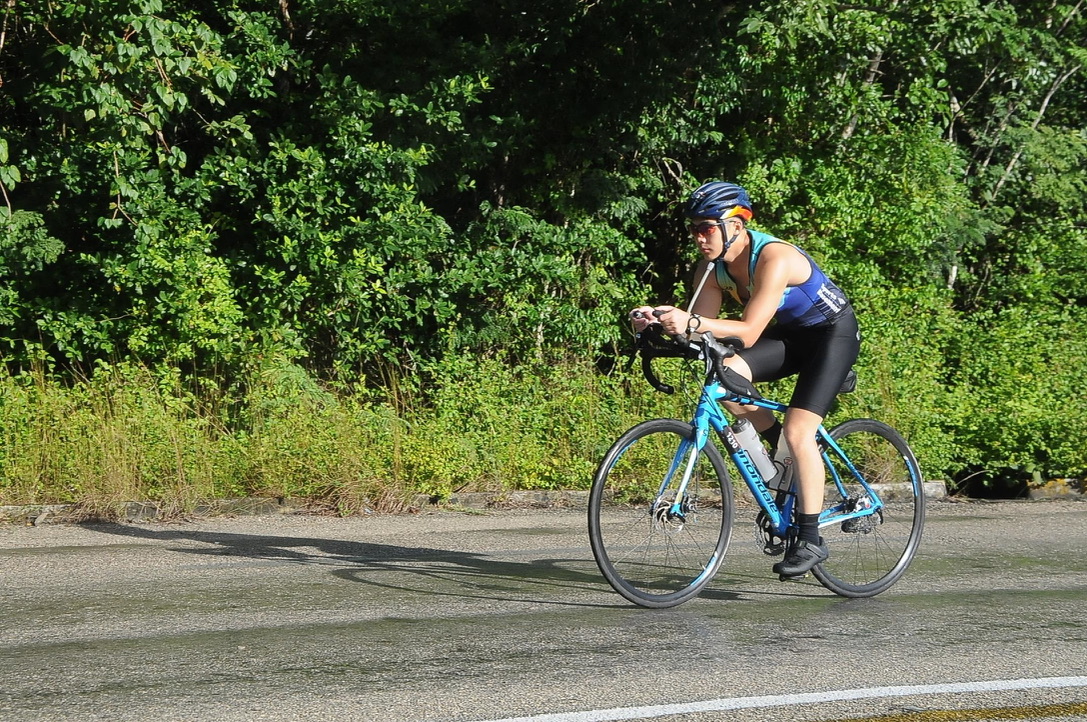
Whatever lead I had in the swim, I quickly lost on the bike. Everyone and their $10,000 bikes kept passing me as I focused on keep my heart rate at a steady 140 BPM.
The bike was mostly uneventful, except for two sections with torrential, tropical rain.
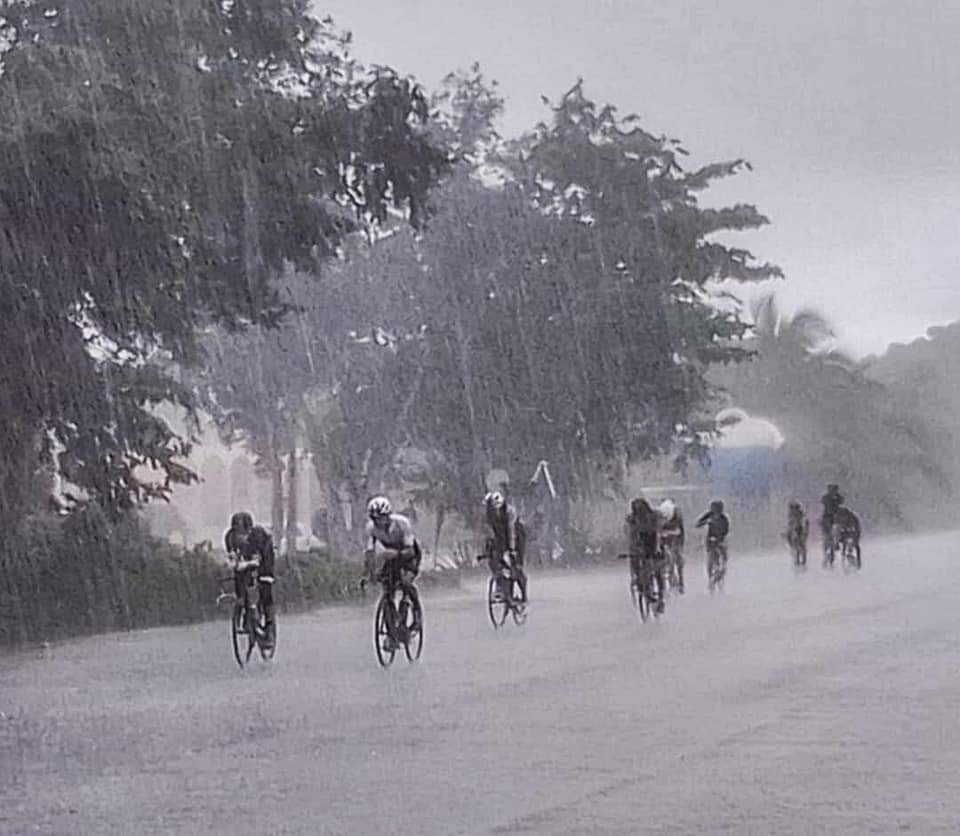
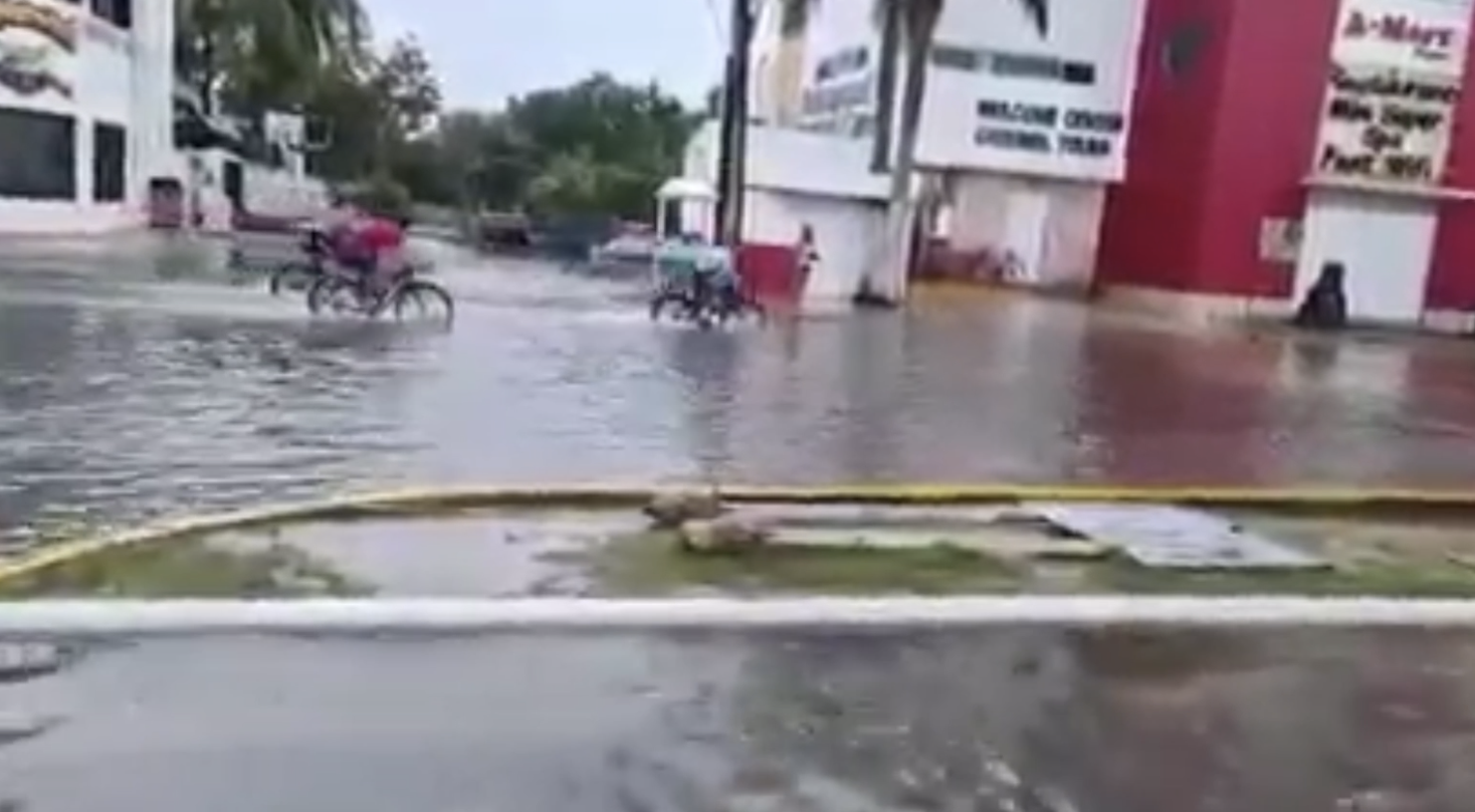
There was also some lighting, but thankfully it never got too close to me.
7 hours and 10 minutes later, I finally reached "T2", the transition area from bike to run. I racked my bike and changed into my running attire. Time for a full marathon I thought.
The Run (26.2 miles)
Weather conditions: 85°F (29°C) | Humidity: 90%
I started the run feeling good, even though I had just been swimming and cycling for 9 hours. I tried to keep a routine 11-12 minute miles for the first 10 miles. To cool my body and prevent getting a heat stroke, I'd soak my visor in ice cold water and pour water down my body.
As I
My armpits were chafed raw and I was doing the best I could to ignore my body telling me to stop.
My last 3 miles averaged 20 minutes/mile as it was excruciating to just put one foot in fronth of the other. I recalled somebody once telling me that all I need to do is to put one foot in front of the other and keep moving forward.
"You Are An Ironman!"
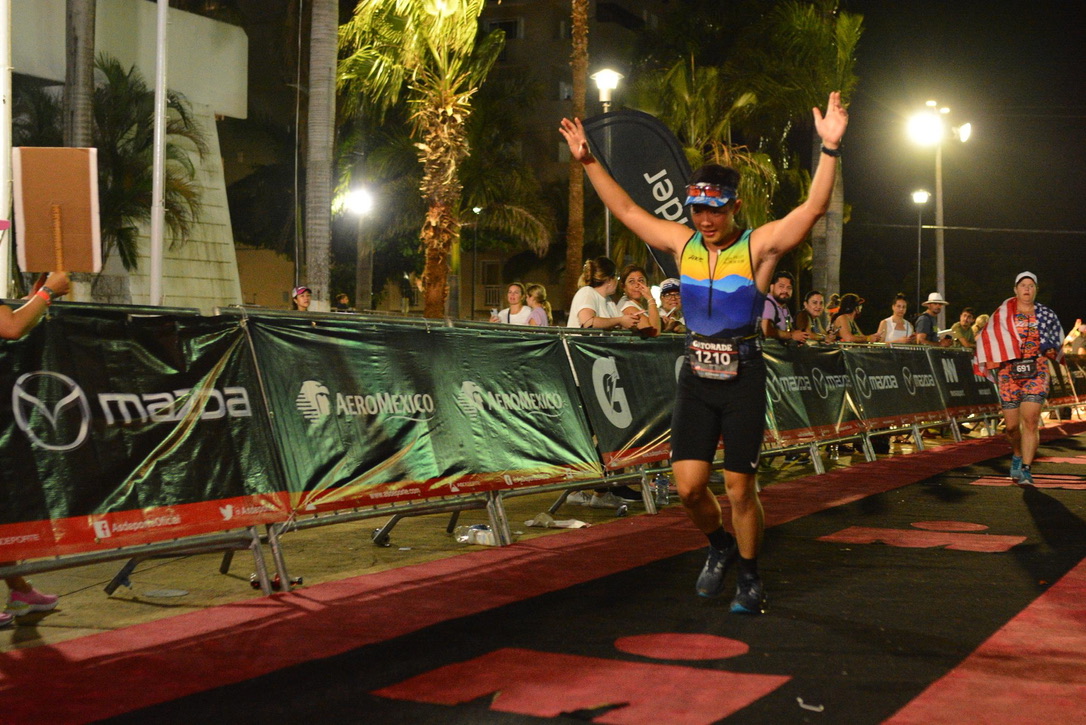
I crossed the finish line at 11:08 PM, 15 hours and 17 minutes since I had started the race.
What I had dreamt about for years since I was just a teenager turned from a vision into reality. I had pictured myself crossing the finish line numerous times in the past, starting in high school. I thought about how I would cry or grin broadly at the camera or be filled with joy.
Instead, when I crossed the finish line that day, all I could think about was my excruciating pain and trying not to break down.
Hospitalization
Immediately after I picked up the Finisher's medal, t-shirt, I found Deepak and Andrea waiting for me. Some quick minutes later, I knew something was wrong. I couldn't move my hands and my entire body was going commpletely numb. The doctors at the infirmary immediately hooked me up onto an IV. I had all sorts of thoughts going through my head at the time. I thought I had a stroke or that I had seriously fucked up my body. They said that if I didn't get better soon I would have to go to the hospital. I didn't have my phone and I still needed to pick up my bike and gear.
I later learned that I didn't consume enough electrolytes during the race, starting sometime pretty early during the bike ride. This would also explain nthe numbness in my right arm during the bike and the numbness shooting up from my feet during the latter half of the run.
A liter of saline solution later, I began to walk again. I found Deepak and Andrea graciously waiting for me outside the infirmary tent. They called me a cab and collected my bike and other belongings. I honestly don't know what I would've done without them. I wish I could say that I slept better than I ever had that night, but my body was still so amped up that I was finally able to fall asleep at 3 AM and naturally awoke at 9.
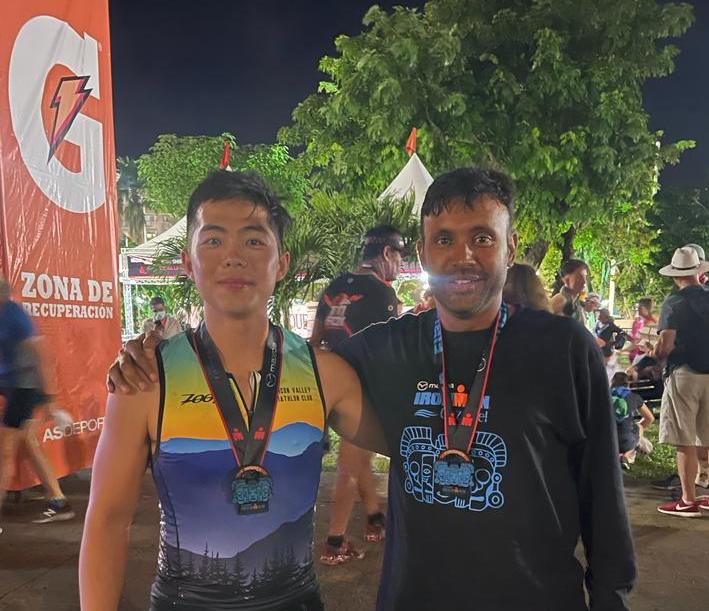
Part 4: Reflection
Not being experienced with Ironman nutrition and taking in enough salt impared my performance severely. If I decide to do another Ironman (likely), my goal will be to see how fast I can get. I'm pretty confident I could get my time to 12-13 hours.
One thing I realized during the race is that regardless of what shape and size an Ironman athlete is, is that they're all badasses. I never heard a single person mutter anything remotely negative during the entire race. Not even a "man, this hurts!" or "I'm tired", Even though I knew for certain that there were people who were suffering as much as me or more and I had already reached my threshold for suffering. Many Ironmen/women don't look stereotypically strong or fit, and some were even overweight or disabled, yet were mentally and physically just as strong as me if not stronger. It was such a humbling experience to be in the presence of these people.
I had so much self-doubt during this journey. From before I started my 30-week training program, to during it and especially the days, hours, minutes, and seconds leading up to the race. Even with all the training that I put in and support from other triathletes, friends, and family, there was still this looming doubt as I knew I would be attempting something more challenging than I've ever done. Overcoming those doubts, managing my emotions, and pushing through all of the pain during the race has been my greatest triumph.
Days after I finished the race, I found myself wanting more and I began asking myself what else could I achieve. Partly curious and partly mad (probably), I looked into swimmisng the English channel, 100-mile ultramarathons and even the MOAB 240, a 238-mile run through the deserts and canyons of Utah, and Badwater 135, a 135-mile run from Death Valley at -100 ft. elevation to Whitney Portal at 8,000 ft.
After some needed reflection and insights from an interview of one of the world's best ultramarathon runners below, I decided that doing an Ironman is already quite extraordinary, especially at my age (there were only 10 people in my age group at the race). It's time for me to enjoy life for a bit and then grind on other parts of my life.
As I've said before, don't ever stop dreaming.
Acknowledgements
Solomon Demmessie for the initial inspiration.
For your continuous advice and unwavering support: Brenna Broadnax, Ravi Viswanathan, Deepak, Veronika Spalekova, Viktor Spalek.
And to those who knew nothing about triathlons and endurance sports, but never failed to believe in me: Carol Zhang, Henry Chan, Andrew Chang, Douglas Qian, Mom, and Dad.